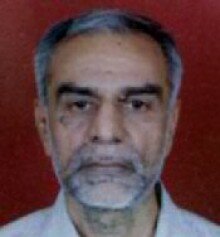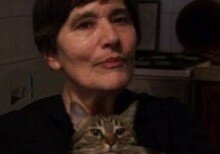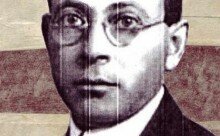
Born in 1944, Nitin Mehta is a senior Gujarati poet, critic and translator. His poetry moves effortlessly between the mundane and the fantastic, the common and the pathological, as it records the varied challenges of life in the great seething megalopolis of Mumbai with a mix of irony and self-implication, observation and engagement.
In his essay, A Poetry of Urban Psychopathologies, art editor, critic and translator Abhay Sardesai locates Mehta in his early years as a poet negotiating a lively and contentious Gujarati scene of the ‘70s: one that was polarised between a formalist impulse and a value-based orientation. It was a scene of some ferment that prompted Mehta and a group of young Gujarati writers to start Yahom, a little magazine that rejected the complacent status quo-ist wisdoms of the previous generation and devoted itself to a more linguistically exploratory, formally rigorous writing.
“Language fascinates me,” says Mehta. “I have immense faith in it. Contrary to all that our doomsayers foretell, language will keep on re-invigorating itself to meet the demands and compulsions of the digital age.”
Mehta’s book of poems, Nirvan (1988) was hailed as a significant anthology in the Gujarati literary scene and won him the Sandhan Critics Award. He has further consolidated his position in Gujarati letters with his critical writing, for which he has been awarded the Gujarat Sahitya Akademi Award. He holds a doctorate on poetic diction in modern Gujarati poetry and has written widely on medieval Gujarati literature as well as modern, postmodern and critical social theory. He was appointed head of the Gujarati Department of Bombay University in 1990, a position he held until recently. He is currently working on a book on modern Gujarati literature that derives from the urban experience.
The poems included here are from his book, Nirvan. A quietly surrealist sensibility explores the varied facets of an unmistakably modern world: violent, treacherous, sinister, empty, desiccated, unsettling. There are several images you carry away with you from this poetry. For me the most compelling remains the vignette of the eternal Indian cow amid the frenzy of the city street, a silent monumental presence that makes a more telling comment on its surroundings than any explicit critique:
The policemen blow their whistles.
They rain blows.
From the welts on the cow’s back
gush a series of springs.
In their waters, I see reflected, broken chunks of the sky
bobbing away like boats.
On the black tar road
the cow stands in complete silence.
Mehta’s is a quiet poetry of immense disquiet.
Also on this site
A Poetry of Urban Psychopathologies
An essay by Abhay Sardesai.
Bibliography
Poetry:
Nirvan . Chandramauli Prakashan, Ahmedabad, 1988.
Criticism:
Pandityugnu Punarmulyankan. Ed., Kshitij Sanshodhan Prakashan Kendra, Mumbai/ Vadodara, 1987. (Literary historiography.)
Kavyabani .Kshitij Sanshodhan Prakashan Kendra, Mumbai/ Vadodara, 2001. (Gujarat Sahitya Akademi Award for Literary Criticism.)
Suresh Joshi – Ketlik Navlikao. Ed., National Book Trust, New Delhi, 2002. (Literary Criticism.)
Apurna . Nitin Mehta, Vadodara, 2004. (Literary Criticism.)
Website featuring Mehta
Narmad
Pictures of Litterateurs: a photo of the poet





